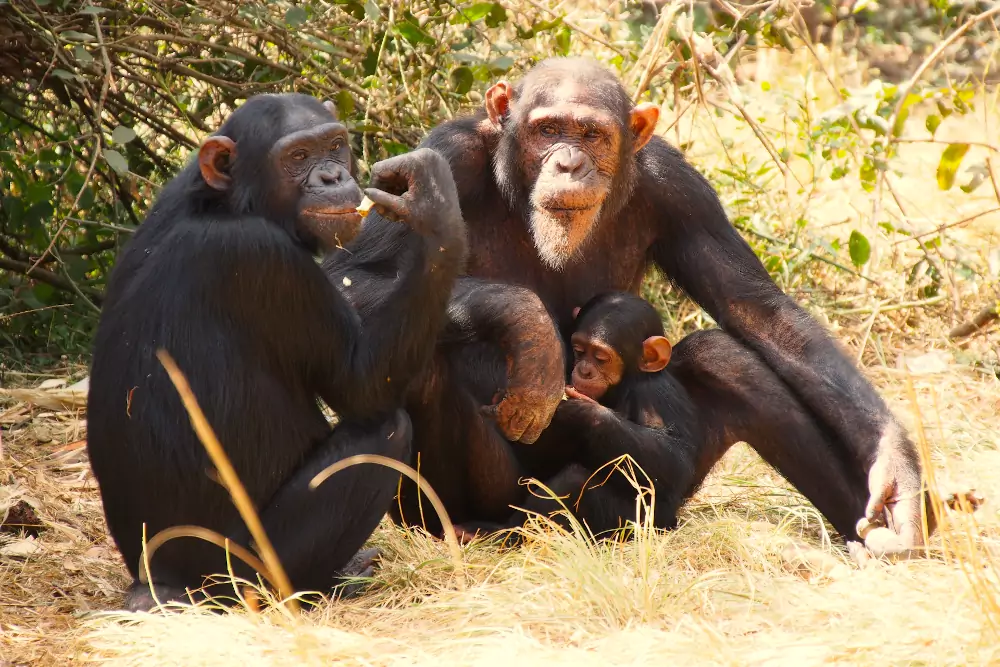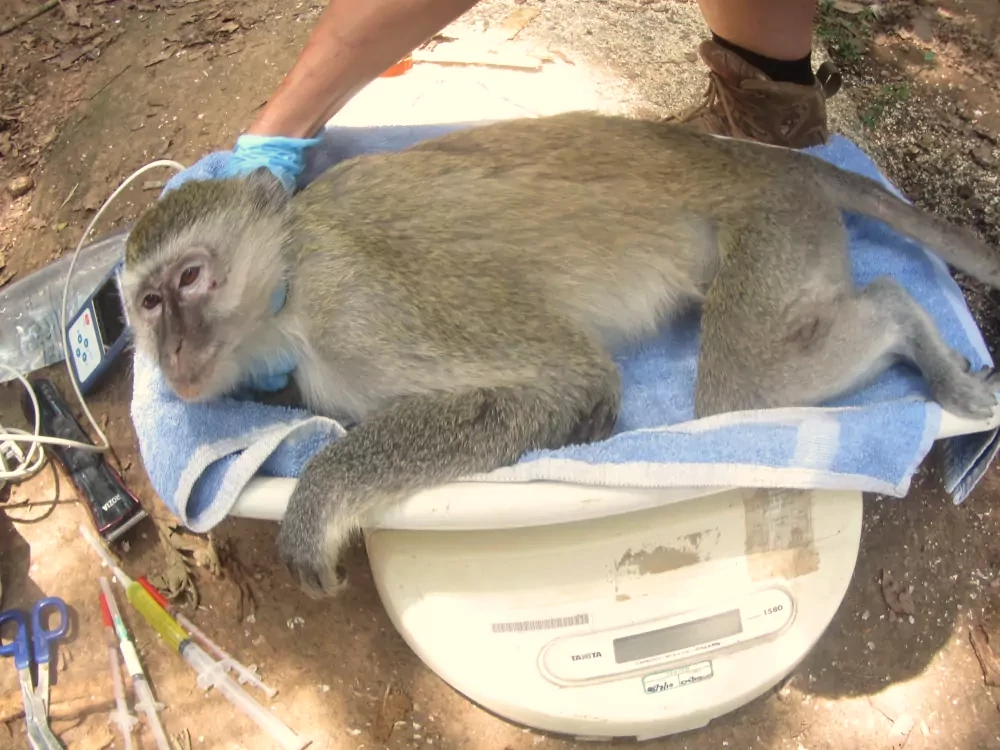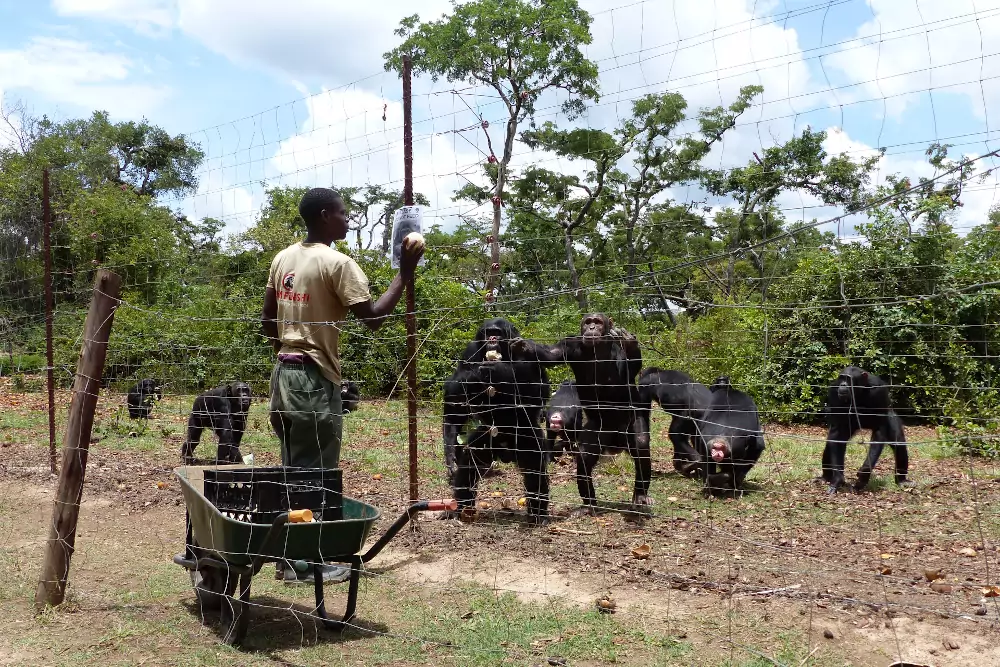Chimpanzees
Chimfunshi Wildlife Orphanage in northern Zambia is one of the oldest and largest chimpanzee sanctuaries in the world. It is home to more than 150 chimpanzees and numerous wildlife species on more than 10,000 hectares of forested land on the banks of the Kafue River in the Copperbelt region.
The chimpanzees come to Chimfunshi from all over the world after being rescued from poachers, from amusement parks or from private keepers.
Here, the animals taken in find a species appropriate habitat which provides them with the greatest possible freedom. Since chimpanzees are not native to Zambia, Chimfunshi can take in animals from all over the world and from regions of Africa where there are no sanctuaries.

Chimfunshi provides refuge for chimpanzees of all ages and backgrounds, caring for and nurturing them throughout their lives.
Re-release of the animals is not possible due to genetic mixing, past trauma, and lack of suitable habitat.
The chimpanzees at Chimfunshi live in carefully integrated groups in forested large outdoor enclosures under close-to natural living conditions. The animals only come into the supply buildings for supplementary feeding, welfare monitoring or medical treatment. Otherwise, they live like wild chimpanzees in the forest, sleeping in tree nests, as they would in the wild.
Wildlife
In addition to providing refuge for chimpanzees, the conservation and care of local wildlife is an important part of Chimfunshi's holistic work:
Chimfunshi offers a variety of ecosystems from flat grassland plains to wetland aquifer 'dambos', relic rainforests, and vast expanses of the 'dry' rainforest known as 'Miombo'.
This makes Chimfunshi an ideal home for a variety of wildlife.
Wildlife naturally occuring at Chimfunshi, and that in other areas of Zambia in need of veterinary treatment or care, are taken, treated and cared for and then reintroduced to the wild at Chimfunshi.

In addition, the Chimfunshi area is particularly rich in birdlife and is internationally designated as an Important Bird Area (IBA) because it is home to a variety of rare bird species.
Together with the local population, Chimfunshi takes responsibility for the endangered chimpanzees as well as the wildlife species native to Zambia and works to protect them.


